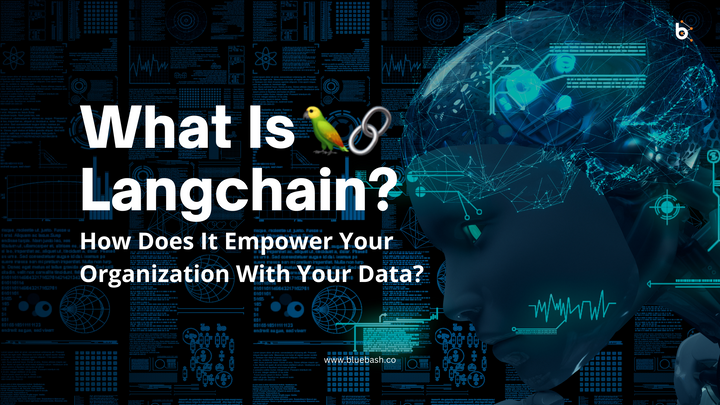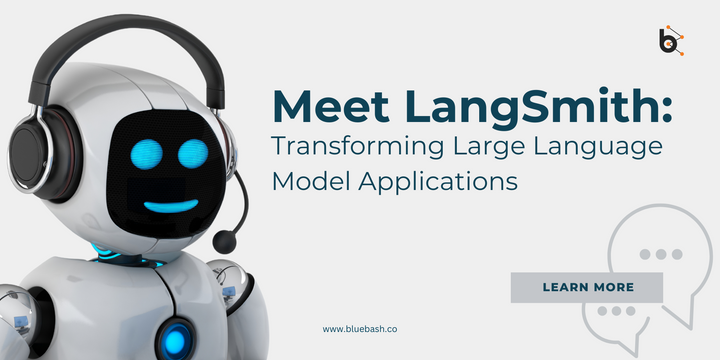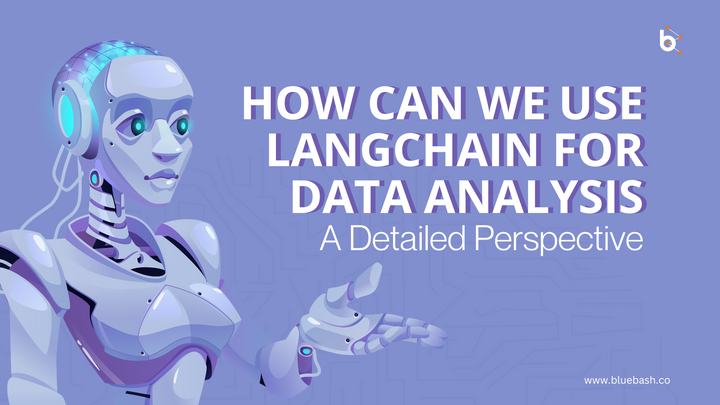How AI Solutions Are Shaping The Future of Web Development?

AI solutions in web development have revolutionized the way websites are designed, developed, and maintained. Artificial Intelligence, or AI, is being increasingly integrated into various aspects of web development to enhance user experience, streamline processes, and improve overall efficiency. From chatbots that provide instant customer support to personalized content recommendations based on user behavior, AI is reshaping the digital landscape. This introduction will explore the impact of AI solutions on web development, highlighting key technologies, trends, and benefits that AI brings to the table. By leveraging AI tools and algorithms, web developers can create dynamic, responsive websites that adapt to user preferences and deliver a more tailored experience. As AI continues to advance, its role in web development will only grow, offering new possibilities for innovation and creativity in the online space.
The Impact of AI on User Experience
The integration of Artificial Intelligence (AI) has revolutionized the way users interact with technology. From enhancing user interaction with chatbots and virtual assistants to personalizing user experience through AI, the impact is profound. Let's delve into how AI is reshaping user experience.
Enhancing User Interaction with Chatbots and Virtual Assistants
One of the most significant impacts of AI on user experience is the proliferation of chatbots and virtual assistants. These AI-powered tools have transformed customer service by providing instant responses to queries, guiding users through processes, and even offering personalized recommendations. By simulating human-like conversations, chatbots and virtual assistants enhance user engagement and satisfaction. Moreover, the integration of natural language processing (NLP) allows these AI systems to understand user intent better, leading to more accurate responses and improved user experiences.
Personalizing User Experience through AI
AI algorithms analyze user data to create personalized experiences. By tracking user behavior, preferences, and interactions, AI can tailor recommendations, content, and services to individual users. This level of personalization not only improves user satisfaction but also increases conversion rates and customer loyalty. From recommending products based on past purchases to curating content based on browsing history, AI enables a hyper-personalized user experience. Additionally, AI-driven personalization can lead to increased customer retention and lifetime value by fostering a deeper connection between users and brands.
Leveraging Predictive Analytics for Improved User Engagement
Predictive analytics, powered by AI, enables businesses to anticipate user needs and behavior. By analyzing historical data and patterns, AI algorithms can predict future actions and trends, allowing companies to proactively engage users. Whether it's offering targeted promotions, predicting churn rates, or optimizing content delivery, predictive analytics enhances user engagement and drives business growth. Furthermore, the use of machine learning models in predictive analytics can continuously improve user engagement strategies by adapting to changing user preferences and market dynamics.
The impact of AI on user experience is transformative. By enhancing user interaction with chatbots and virtual assistants, personalizing user experience through AI, and leveraging predictive analytics for improved user engagement, businesses can create seamless, intuitive, and tailored experiences for their users. The continuous advancements in AI technology promise even more exciting developments in user experience enhancement in the future.

Implementing AI Technologies
- Selecting the Right AI Tools and Technologies for Web Development.
In this digital age, the integration of artificial intelligence (AI) technologies into web development has become increasingly prevalent. When embarking on a web development project that incorporates AI, it is crucial to carefully select the right tools and technologies to ensure the success of the endeavor. This section will explore the key considerations and factors to keep in mind when choosing AI tools for web development. - Integrating AI Seamlessly into Web Applications
Once the appropriate AI tools and technologies have been identified, the next step is to seamlessly integrate them into web applications. This process involves not only incorporating AI functionalities into the application but also ensuring that they work harmoniously with existing features. By effectively integrating AI into web applications, developers can enhance user experiences, streamline processes, and unlock new capabilities. - Addressing Data Privacy and Security Concerns
While the benefits of leveraging AI in web development are vast, it is essential to address data privacy and security concerns. As AI technologies rely heavily on data, ensuring the protection and privacy of user information is paramount. Developers must implement robust security measures, adhere to data protection regulations, and prioritize ethical data practices to safeguard sensitive information. This section will delve into the importance of prioritizing data privacy and security when implementing AI technologies in web development. - Enhancing User Engagement with AI-Powered Features
Apart from improving operational efficiency, AI technologies can also revolutionize user engagement on websites. By incorporating AI-powered features such as personalized recommendations, chatbots for customer support, and predictive analytics for user behavior, web developers can create dynamic and interactive user experiences. These features not only enhance user engagement but also contribute to increased conversions and customer satisfaction. - Optimizing Performance through AI-driven Insights
AI tools can provide valuable insights into website performance, user interactions, and content effectiveness. By leveraging AI-driven analytics, developers can gain a deeper understanding of user behavior, preferences, and trends. This data-driven approach enables continuous optimization of web applications, leading to improved performance, increased user retention, and higher conversion rates. Implementing AI technologies for performance optimization is essential in today's competitive digital landscape. - Future Trends and Innovations in AI for Web Development
The field of AI is rapidly evolving, with new trends and innovations shaping the future of web development. From advancements in natural language processing and computer vision to the rise of AI-powered automation tools, staying abreast of the latest developments is crucial for web developers. This section will explore upcoming trends in AI for web development and discuss how embracing these innovations can drive competitiveness and innovation in the digital space. - Future Trends in AI for Web Development
In the rapidly evolving landscape of web development, artificial intelligence (AI) is playing an increasingly significant role. As we look towards the future, several key trends are emerging that are set to revolutionize the way websites and web applications are designed, developed, and maintained. Let's delve into some of the most prominent trends shaping the intersection of AI and web development. - Automation with AI in Web Development
One of the most impactful trends in AI for web development is the automation of various tasks. AI-powered tools and platforms are streamlining the development process by automating repetitive tasks such as code generation, testing, and deployment. This not only saves time and effort for developers but also enhances the overall efficiency and accuracy of the development workflow. Automation is not just about speeding up processes but also about ensuring consistency and reducing errors, leading to higher-quality outcomes. - Enhancing User Engagement through AI
AI is being leveraged to enhance user engagement on websites by personalizing the user experience. By analyzing user behavior and preferences, AI algorithms can deliver tailored content, product recommendations, and interactive elements that are more likely to resonate with individual users. This level of personalization not only improves user engagement but also boosts conversion rates and customer satisfaction. Additionally, AI can enable real-time interactions with users, providing instant support or recommendations based on their current needs and preferences. - AI-Driven Content Creation and Personalization
Content creation is a crucial aspect of web development, and AI is increasingly being used to automate and optimize this process. AI-powered tools can generate written content, design graphics, and even create videos based on predefined parameters and objectives. Furthermore, AI can analyze user data to personalize content delivery, ensuring that each user receives content that is relevant and engaging. By leveraging AI for content creation and personalization, websites can deliver a more tailored and compelling experience to their audience, leading to increased engagement and loyalty.
Ethical Considerations in AI Development
- As AI continues to advance in web development, it is essential to consider the ethical implications of its use. Developers must ensure that AI algorithms are transparent, fair, and accountable. Ethical AI practices involve addressing bias in algorithms, protecting user privacy, and maintaining data security. By prioritizing ethical considerations in AI development, developers can build trust with users and create sustainable, responsible AI-powered solutions.
- The future of AI in web development is bright and full of possibilities. By embracing these emerging trends and leveraging the power of AI, developers can create more dynamic, engaging, and personalized web experiences for users around the globe. However, it is crucial to approach AI development with a focus on ethics and responsible innovation to ensure a positive impact on society and the digital landscape.

Challenges and Ethical Considerations
In the rapidly evolving landscape of web development, the integration of Artificial Intelligence (AI) algorithms has become increasingly prevalent. While AI offers numerous benefits in enhancing user experience and optimizing processes, it also presents a myriad of challenges and ethical considerations that developers must address. This blog section delves into the ethical implications of AI algorithms in web development, the importance of addressing bias and fairness issues in AI solutions, and the significance of continuous monitoring and maintenance to uphold ethical standards and ensure responsible AI implementation.
- Ethical Implications of AI Algorithms in Web Development
The utilization of AI algorithms in web development raises significant ethical concerns regarding data privacy, transparency, and accountability. Developers must consider the ethical implications of AI-driven decision-making processes, such as personalized content recommendations and targeted advertising. Ensuring that AI algorithms operate ethically and respect user privacy is paramount to building trust with consumers and upholding ethical standards in web development. - Addressing Bias and Fairness Issues in AI Solutions
One of the most pressing challenges in AI development is the presence of bias in algorithms, which can perpetuate discrimination and inequality. Developers must proactively identify and mitigate bias in AI solutions to ensure fairness and equity. Implementing measures such as diverse training data sets, algorithmic transparency, and bias detection tools can help address bias and promote fairness in AI applications.
Importance of Continuous Monitoring and Maintenance
Ethical considerations in AI development extend beyond the initial deployment of algorithms and require ongoing monitoring and maintenance. Continuous monitoring is essential to detect and address ethical issues that may arise as AI systems interact with users and evolve over time. Regular audits, feedback mechanisms, and updates to algorithms are crucial to maintaining ethical standards and mitigating potential risks associated with AI technologies.
By acknowledging and addressing the challenges and ethical considerations inherent in AI-driven web development, developers can foster a culture of responsible innovation and ethical practice. Embracing transparency, fairness, and continuous improvement is essential to harnessing the full potential of AI while upholding ethical standards and promoting trust in the digital ecosystem.
Faqs-
What is the role of AI in web development?
AI enhances various aspects of web development by automating tasks, personalizing user experiences, improving efficiency, and providing valuable insights through data analysis.
How does AI improve user experience on websites?
AI improves user experience by offering personalized content, utilizing chatbots and virtual assistants for customer support, and leveraging predictive analytics to anticipate user needs.
What are some common AI technologies used in web development?
Common AI technologies include natural language processing (NLP), machine learning algorithms, predictive analytics, AI-driven chatbots, and automation tools.
How do chatbots enhance user interaction on websites?
Chatbots provide instant responses to queries, guide users through processes, and offer personalized recommendations, leading to improved user engagement and satisfaction.
What future trends in AI are likely to impact web development? Emerging trends include increased automation of web development tasks, advancements in NLP and computer vision, AI-driven content creation, and real-time user engagement tools.
How can businesses start integrating AI into their web development projects?
Businesses can start by consulting with AI experts, selecting the right AI tools and technologies, and ensuring ethical implementation while continuously monitoring and optimizing AI solutions.



